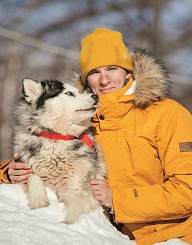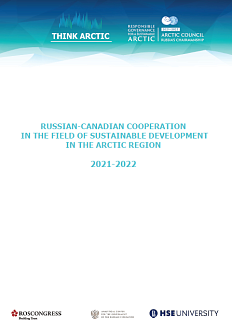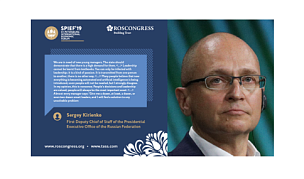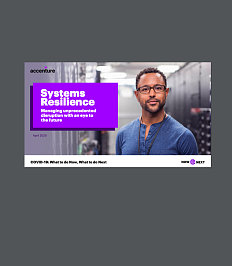How a tale of lost love became the start of one man’s life’s work
«Do you want to hear a romantic stor y?» ask s Alexey Tkachenko. «I had a girlfriend who really wanted a dog, so I gave her a Siberian husky as a gift. She left; the dog didn’t.» Five years later, Alexey has 28 huskies — and soon, he’ll have 36.
He started off as a dog sledder, becoming the best musher in Sakhalin, the mushing champion of the town of YuzhnoSakhalinsk, and a multi-award-winning master of the sport. «I started off practising in town with two dogs, and then moved to my own plot on the community land», Alexey tells us. Then, his passion evolved into something bigger. Alexey became hooked on this unusual sport and left his job. Soon after, the Far Eastern Hectare project came along.
On 1 June 2016, the Far Eastern Hectare programme, a Russian initiative offering the chance to obtain a plot of land in the Russian Far East of up to one hectare — for free — was launched. The programme has been running for just over two years now, during which 120,000 people from all over Russia have exercised their right to land. They have come up with all sorts of different ideas about what to do with it...
Together with his father, Alexey acquired two nearby plots of land in the village of Novoye in the Krasov district. He began by making the first plot habitable, building a small house, a Siberian yurt, and indoor and outdoor kitchens, and buying the machinery and equipment he would need. Investment in the project amounted to RUB 2–3 million.
Before becoming a kayur, or dog sledder, Alexey had gone through a number of professions: he had been a chef, a builder, worked in advertising... Now all of this experience is coming in handy. «You see, it’s not enough just to love dogs. You have to understand how to get things done, too», explains the entrepreneur. «The jobs I used to do — building, advertising, cooking — have helped to give me a sense of how best to organize projects, build things, and get initiatives off the ground.»
Six months before the launch, Alexey began spending time talking about his project on social media, putting up photos of himself and the dogs. «After all that, our local journalist noticed me, and then other reporters approached me too», he says. He was also helped by some sporting friends, who spread the word about his project.
Aina-Tour was officially launched on 4 January 2018, and immediately caused a stir. «I was getting groups coming, generally seven or eight people. They’d got themselves together; I hadn’t organized anything in particular», says Alexey in surprise. He found himself booked up throughout the winter.
Guests were offered a trip out with the dogs and a dog musher, with Alexey himself acting as tour guide and photographer. «I show them the dogs and we all get to know each other. The dogs go very fluffy in the winter. I give the visitors instructions: what they can do, what they can’t, which dogs they can touch and how, that sort of thing», the entrepreneur explains. «Then, we harness up a team of dogs and set off. If someone gets cold, they can always go inside and warm up, eat a few of our little pancakes and drink tea with homemade honey or jam. The others join them later. If guests let us know beforehand, we can cook them traditional Northern Russian meals.» There is no dog sledding in the summer, but Alexey has set up a photography zone and organizes dog sledding photo sessions. He also leads excursions and takes tourists hiking with the dogs.
In the winter, during high season, tourists from more than 20 countries went on Aina-Tour excursions, mostly Russians and expats working in the oil and gas industry on Sakhalin. However, in the near future, Alexey is hoping to start attracting ordinary tourists too, as well as schoolchildren and children on summer camp. He plans to open a base on the second plot of land which will provide enough space for 20–25 people to visit at once, rather than the 8–10 who can be accommodated now. Moreover, the second plot is in a better location, not far from where the cruise ships stop. «I’ll want to tailor it for them and come up with something interesting to offer. But that will be when I’ve got things up to a European standard», decides Alexey.
It won’t be easy. Alexey himself calls his project «very complex». For instance, bad weather can throw a spanner in the works: last winter, Sakhalin had heavy snowfall for a month, with snowdrifts of up to three metres, meaning that sledding tracks had to be cleared over and over again. But the entrepreneur is not daunted. «I wanted the business to take off so that I wouldn’t have to go back to work», he laughs. «I started from absolutely nothing, set a goal for myself, and now I’m going for it.»






